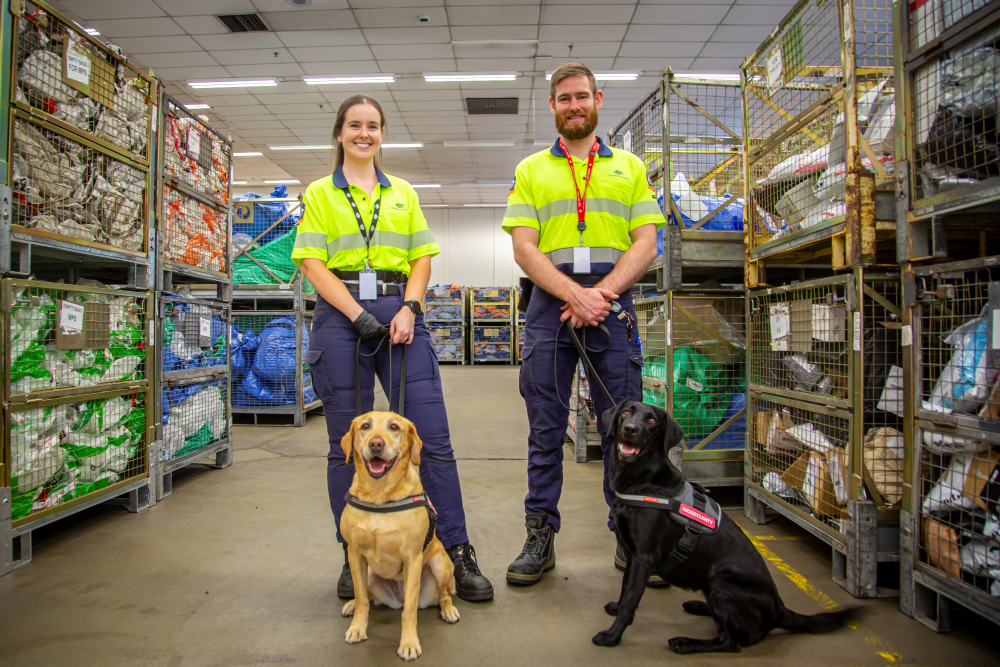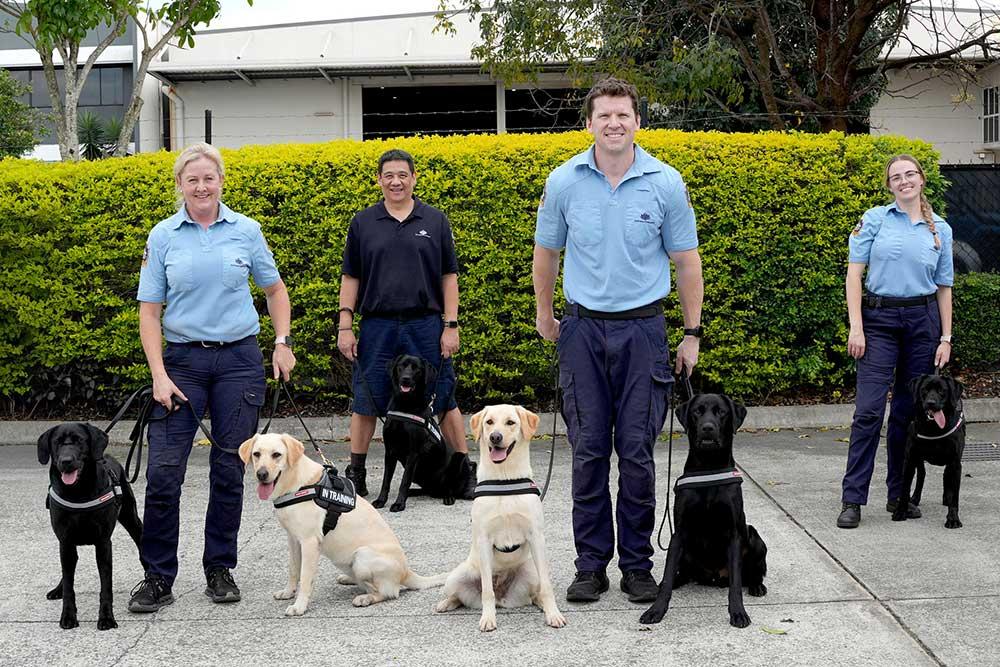Dr Nerida Donovan
For over 25 years Dr Nerida Donovan has led a citrus pathology program that enables government and industry to combat citrus biosecurity threats and support industry sustainability.
Dr Donovan and her team are recognised as the premier laboratory in Australia for the detection, identification, classification and management of citrus pathogens. They can detect all described citrus diseases, understanding these within our borders to minimise their impact and preparing for the arrival of new diseases.
In recognition of her continued efforts to safeguard Australia and its citrus industries against emerging threats, Dr Donovan was honoured by her peers in 2019 with 2 prestigious awards: the Lester Burgess Award for Diagnostics and Extension presented by the Australasian Plant Pathology Society and the Service to Industry Award presented at the Citrus Australia Technical Forum. The awards acknowledged her work to enhance the preparedness of industry and government.
Dr Donovan and her team work closely with the Auscitrus propagation scheme to ensure the citrus industry has access to ‘high health status’ propagation material. This is achieved through routine disease testing of budwood and rootstock seed source trees and by maintaining healthy foundation trees as part of the National Citrus Repository Program. These trees are the backbone of the Australian citrus industry. They provide an ongoing source of disease-free material to establish and restock citrus orchards nationally, maintaining high health standards and suppressing the distribution of citrus diseases.
A champion for biosecurity and the citrus industry, Dr Donovan generously attends a range of professional events to increase awareness of important issues. She has been featured by national media outlets and in industry publications and is a sought-after speaker at national and international conferences.
Dr Donovan is a prolific contributor to scientific journals, sharing the work of her team to showcase advancements in citrus testing, pathogen distribution and pest and orchard management. Her work represents best-practice biosecurity on a global scale, helping to reduce the risk across citrus-growing nations worldwide.
Dr Donovan has authored and contributed to publications such as Viroids: Methods and Protocols (2022) and Diseases of Fruit Crops in Australia (2009), and production manuals, including the Citrus plant protection guide (2017 to 2024) for Australian growers and a Nursery Manual for Citrus and Mango (2016) for developing nations.
Her work demonstrates that sharing knowledge and resources creates a stronger biosecurity system for all. Her laboratory was one of the first to provide rare samples of genomic extractions from infected plant material to the department’s Post Entry Quarantine Facility. The samples were used to develop, enhance and validate in-house testing, which improves capability to detect the world’s worst citrus pathogens at the border.
Dr Donovan has travelled extensively to support international engagement opportunities, particularly across Asia, where she trains farmers, extension officers and scientists on citrus tree inspection and management practices for maximising fruit production and returns. Her expertise, experience and professionalism have contributed to improved biosecurity and economic outcomes for our near neighbours. Dr Donovan’s work on increasing quality and output of citrus orchards has helped alleviate poverty in developing nations where citrus is an important cash crop.
During these trips, Dr Donovan obtains samples of infected plant material that would otherwise be difficult to secure. She brings them back to Australia for analysis and shares them with other agencies to improve diagnostic and detection capabilities – uplifting the entire plant biosecurity system.
Dr Donovan maintains an enviable network, including world-leading experts in the pathology field. In 2019 her peers elected her Chair of the International Organization of Citrus Virologists. In this capacity, she organised their 2022 online conference and the 2025 conference in Mildura, giving Australian growers and scientists direct access to international experts on our key citrus biosecurity threats.
Dr Donovan’s unwavering dedication and scientific leadership have made her a cornerstone of Australia’s biosecurity efforts, leaving a legacy in the protection and resilience of the nation’s citrus industries.
Watch a video about their work
Introduction
This is the accessible text transcript of the 2025 Australian Biosecurity Awards winner video featuring Dr Nerida Donovan.
Transcript
My name is Dr Nerida Donovan.
I’m a Citrus Pathologist with the New South Wales Department of Primary Industries and Regional Development, based at the Elizabeth Macarthur Agricultural Institute.
I joined the department in 1999 and have had the privilege of developing and coordinating a citrus pathology program which undertakes research, diagnostics, extension and industry service work across the biosecurity spectrum.
We work on prevention, detection, eradication and management of all citrus diseases.
Those diseases which are in the country already - the endemic diseases - and those which are exotic - so we don’t have them in Australia yet, but we’re trying to keep them out and prepare for them if they arrive.
I’m shocked, but very pleased to be awarded the Dr Kim Ritman Award for Science and Innovation for 2025.
Noting that no one works alone, other members of the Citrus Pathology Team, are Grant Chambers, Anna Englezou and Wendy Forbes, and we work closely with the New South Wales DPIRD citrus team and the Plant Health Diagnostic Service.
We are also connected nationally and internationally to enhance scientific progress and increase the impact of all of our work.
The Australian Government recognises the importance of biosecurity and we have a robust and always improving biosecurity framework.
I’m also privileged to work with the Australian citrus industry, who is very proactive in the biosecurity space.
In particular, Auscitrus, who supplies high health status propagation material to prevent orchard infections of graft transmissible diseases, and Citrus Australia, who prioritises biosecurity.
Some of the activities that they’re involved with includes the Citrus Pest and Disease Prevention Committee and the CitrusWatch industry driven surveillance program.
I’m grateful to Dr Adrian Dinsdale, Director of the DAFF Plant Innovation Centre, for nominating me for this biosecurity award.
My hope is that this award will raise awareness of the important work that is being undertaken in Australia on citrus biosecurity that has been supported by both industry and government.
Photos




